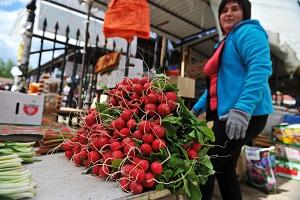Countries of Central Asia, the Caucasus and Eastern Europe have been hit hard by the socioeconomic impacts of the COVID-19 pandemic, which threatens to derail sustainable development progress in the region.
However, there is also a stronger momentum towards regional cooperation, and countries can use it to recover better - i.e. to combine sustainable economic growth, better connectivity and cross-cutting progress towards the Sustainable Development Goals. One specific way of doing this is leveraging practical global and regional normative and policy tools that bring countries together.
To help countries achieve this, UNECE is stepping up its support to governments in the region through a portfolio of high-impact projects to be implemented in close cooperation with UN Country Teams and key partners.
Enhancing sustainable trade in Central Asia
The five Central Asian nations – Kazakhstan, Kyrgyzstan, Tajikistan, Turkmenistan and Uzbekistan –, along with Azerbaijan and Afghanistan, which together participate in the UN Special Programme for Central Asia (SPECA), will benefit from a three-year project to develop policy recommendations and innovative solutions to strengthen sustainable regional trade, with a focus on agricultural products, as well as the careful use of water resources and the development of regional supply chains.
The project will assess gaps in policy and legislative acts and in business processes. The project will also provide targeted capacity building, help develop action plans, training materials and other practical tools for sustainable trade development that would ultimately support the efficient use of water, energy and other resources. This will build on UNECE support for regional cooperation in the harmonization of technical regulation and standardization, digitalization and e-commerce, as well as food security.
SPECA – jointly supported by UNECE and ESCAP – provides a unique, country-owned, platform to facilitate such joint action.
Supporting Armenia, Belarus, Kazakhstan and Kyrgyzstan to develop resilient value chains for a sustainable COVID-19 recovery
Pandemic disruptions to markets, supply chain connectivity and the flow of essential goods exposed the vulnerability of the region’s trade networks, with potential impacts for progress towards Sustainable Development Goals on poverty, hunger and inequality, sustainable economic growth, and beyond.
To strengthen the foundations for their COVID-19 recovery, UNECE will assist countries in the region over the next two years to build resilient, diversified and sustainable value chains at the regional level, and to integrate into international value chains.
The project will support governments to harness the value of UNECE norms, standard and tools, including: UN/CEFACT instruments for trade facilitation, including for the digitalization of trade and logistics chains; UN/CEFACT tools for improved traceability of value chains, such as in the garment and footwear sectors; UNECE’s international agricultural quality standards, which facilitate access to international markets and are particularly relevant for food value chains in the region, which employ many women and young people; and UNECE’s Principles for “people first” Public Private Partnerships for the SDGs to help build sustainable infrastructure, a key requirement for effective value chain engagement.
The project will also draw upon the wealth of knowledge and information gained through UNECE’s analytical work, including Studies on Regulatory and Procedural Barriers to Trade, Innovation for Sustainable Development Reviews and the sub-regional Innovation Policy Outlook.
Improving safety in logistics chains
Safety is a key feature of sustainable trade and transport connectivity. To help ensure safe working conditions and prevent accidents due to improperly secured loads, UNECE will support countries in Eastern Europe, Western and Central Asia to enhance the safety of their logistics chains by raising awareness of the IMO/ILO/UNECE Code of Practice for Packing Cargo Transport Units, Safe Loading and Securing Cargo in Containers (CTU Code), and promoting its use at production, transport and logistics facilities.
The three-year project will engage participating countries in the work on updating the CTU Code, as well as to increase the level of digitalization of the application of the Code, including through the development of a mobile application.
All three projects will be carried out with the generous financial support of the Russian Federation.
